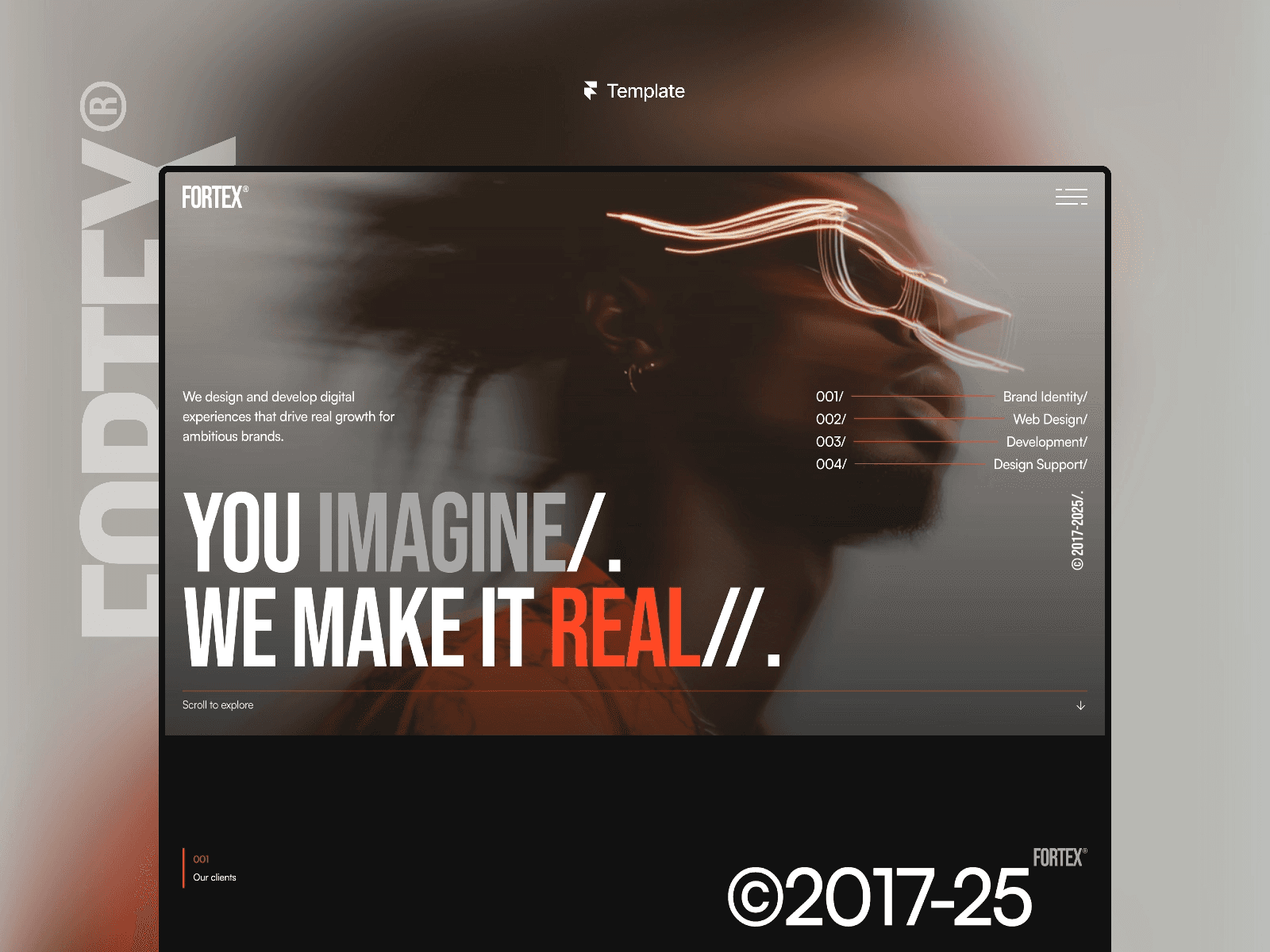Oct 17, 2025
Ecommerce in Framer has reached a turning point that changes everything for online businesses.
The combination of Framer's design capabilities with Shopify's proven ecommerce infrastructure is creating opportunities that didn't exist just months ago. Businesses are reporting significant cost savings while building stores that convert better than traditional solutions.
If you've been waiting for the right moment to build serious ecommerce sites with Framer, that moment has arrived. The tools, templates, and ecosystem have matured to support real businesses with real revenue requirements.
Why Frameship Changes the Ecommerce Game
Frameship represents the breakthrough that makes Framer viable for serious ecommerce businesses. This plugin seamlessly connects Shopify's backend power with Framer's design flexibility, creating a combination that delivers enterprise level capabilities at accessible costs.
The Technical Foundation
Frameship leverages Shopify's Storefront API to enable real time synchronization of products, inventory, and pricing data directly into Framer's native CMS. The setup process takes less than 60 seconds: create a private Shopify app, enable specific Storefront API scopes, and connect through the plugin interface.
This integration automatically imports all Shopify products while maintaining complete design control within Framer's visual editor. Unlike complex headless implementations that require development teams, Frameship makes advanced ecommerce accessible to designers and business owners.
What Frameship Delivers
The plugin provides over 25 drag and drop ecommerce components covering every aspect of online retail. Product management handles variants, pricing, and inventory tracking automatically. Shopping cart functionality works seamlessly with Shopify's proven checkout system.
SEO optimization comes built in with proper product metadata and structured data support. Performance remains excellent because the integration leverages Framer's optimized architecture while maintaining Shopify's robust backend processing.
The Business Case for Framer Ecommerce
Real world results demonstrate compelling advantages over traditional ecommerce approaches.
Cost Efficiency That Actually Matters
Traditional Shopify setups cost $612 to $1,560 annually with additional theme and app expenses. Custom headless implementations range from $176,400 to $748,000 for development alone. Framer with Frameship eliminates both extremes while delivering superior design capabilities.
Documented case studies show businesses saving $1,700 monthly by eliminating unnecessary Shopify apps while gaining better functionality through integrated solutions. The cost savings compound over time as businesses avoid ongoing theme licensing and app subscription fees.
Design Freedom Without Compromise
Standard Shopify themes limit design possibilities to predetermined layouts and styling options. Custom development provides flexibility but requires significant investment and ongoing maintenance. Framer templates offer unlimited design customization while maintaining ecommerce functionality.
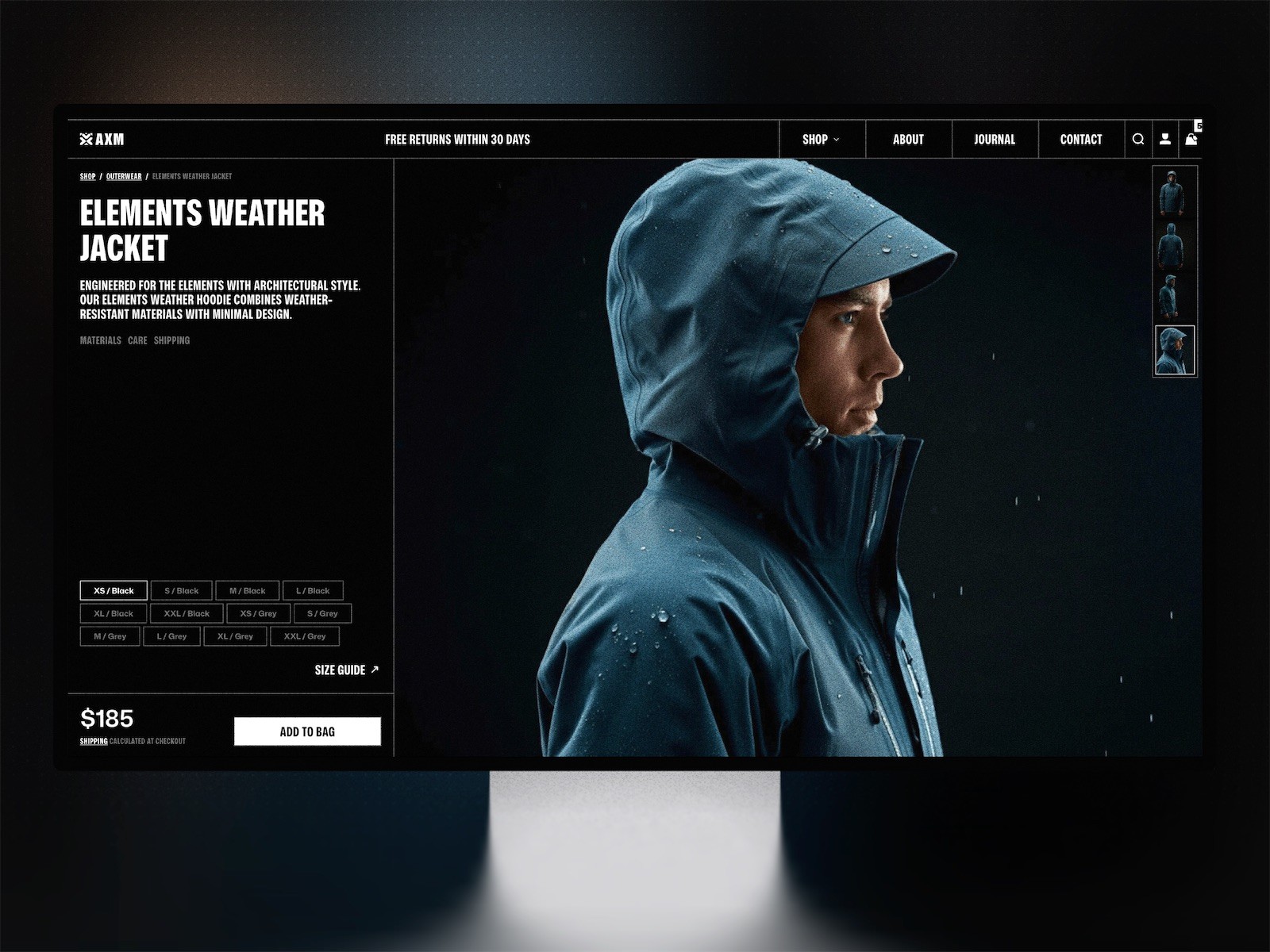
The Axiom template demonstrates this balance perfectly, providing sophisticated ecommerce layouts that remain fully customizable within Framer's visual editor. Businesses can create unique brand experiences without sacrificing conversion optimization or technical performance.
Mobile Commerce Demands New Approaches
Mobile commerce will account for 59% of total retail ecommerce sales in 2026, reaching $4.01 trillion globally. This mobile centric reality requires fundamental changes in how we approach ecommerce design and functionality.
Mobile Performance Requirements
Sites loading in one second achieve 3.05% conversion rates compared to 1.68% for two second loads. Mobile conversion rates lag desktop performance, making optimization critical for business success. Cart abandonment reaches 80.2% on mobile devices, demanding streamlined experiences that reduce friction.
Framer templates built with mobile optimization provide competitive advantages through superior performance and user experience.
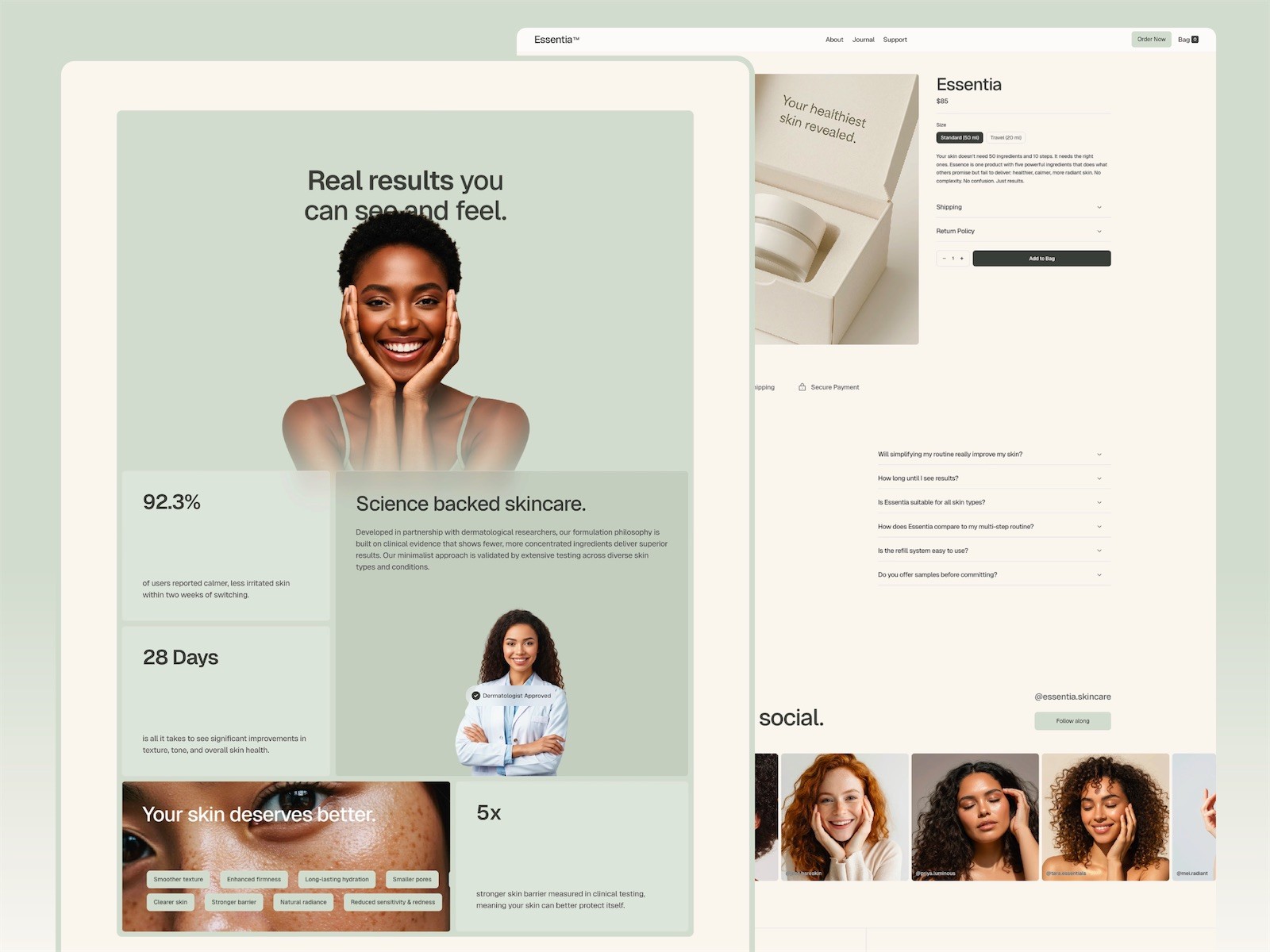
Templates like Essentia demonstrate mobile first design principles that drive conversions across all device types.
Essential Mobile Features
Touch optimized interfaces require minimum 44px button sizes and thumb friendly navigation. Progressive web app features including offline functionality and push notifications enhance user engagement and retention.
Micro interactions provide essential user feedback without overwhelming the experience. Strategic use of animations and transitions guides users through purchase flows while maintaining fast loading speeds.
SEO and Performance Optimization for Ecommerce
Framer provides strong foundational SEO capabilities including automatic sitemap generation, server side rendering, and SSL certificates. However, ecommerce sites require additional optimization strategies to maximize search visibility.
Core Web Vitals Optimization
Target metrics include LCP under 2.5 seconds and CLS under 0.3. Framer's built in optimizations include automatic WebP image conversion, lazy loading, and AWS CDN delivery. Manual optimizations should focus on image compression, strategic font loading, and careful animation implementation.
Structured data implementation requires manual setup through JSON LD in custom code sections. Essential schema types include Product, Breadcrumb, Review, and Organization markup. While Framer's character limits can restrict complex implementations, strategic approaches overcome these limitations.
International Capabilities
Framer supports over 500 locales with automatic hreflang tag generation and AI powered translation capabilities. However, URL slug translation limitations require strategic planning for multilingual implementations.
International ecommerce represents significant growth opportunities for businesses willing to invest in proper localization strategies. Framer templates can support global expansion when planned correctly from the beginning.
Design Principles That Drive Conversions
Modern ecommerce design emphasizes purposeful minimalism with strategic white space usage, limited color palettes, and clear visual hierarchies.
Conversion Optimization Fundamentals
Interactive elements must serve specific conversion goals. 3D product views reduce return rates while micro interactions provide user feedback. Trust building elements like customer reviews and security badges increase confidence and completion rates.
Average ecommerce conversion rates stand at just 1.81%, making optimization critical for business success. Proven strategies include optimized search functionality, streamlined checkout processes, and multiple payment options including guest checkout capabilities.
Accessibility and Compliance
WCAG 2.1 Level AA compliance expands market reach to over one billion people with disabilities while improving SEO rankings and overall user experience. Accessibility features benefit all users, not just those with specific needs.
Proper color contrast, keyboard navigation support, and screen reader compatibility should be built into templates from the beginning rather than added as afterthoughts.
Template Strategy for Ecommerce Success
Building successful ecommerce templates requires understanding both technical requirements and business objectives.
Component Architecture
Modular component libraries enable customization while maintaining design consistency and technical performance. Essential components include optimized product galleries, variant selectors with real time inventory, streamlined cart functionality, and conversion focused layouts.
The template should support various product types and business models without requiring extensive modifications. Flexibility within structure provides the best outcomes for both template creators and end users.
Industry Specific Considerations
Fashion and lifestyle brands benefit from visual heavy layouts that showcase products effectively.
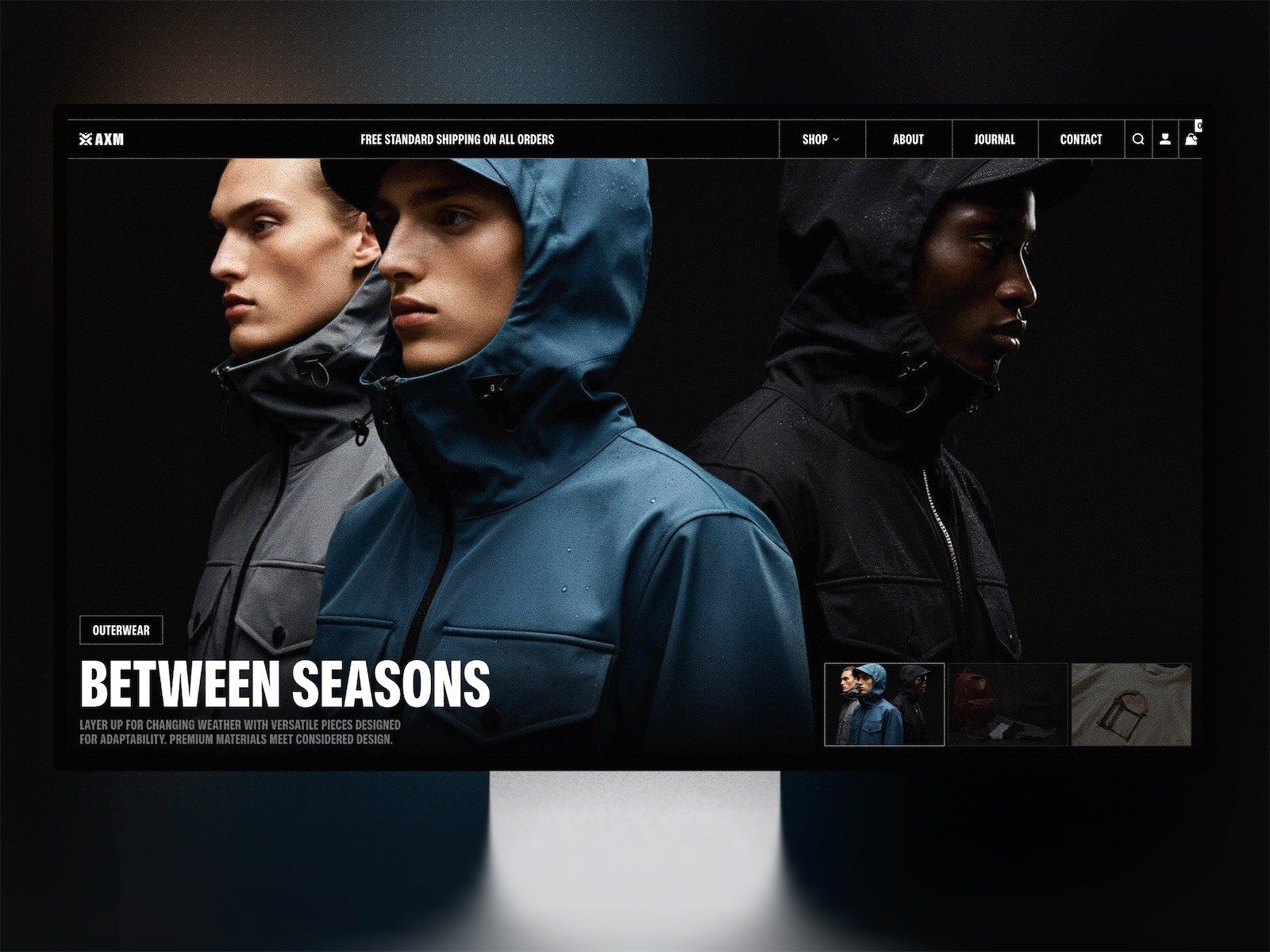
The Axiom template demonstrates this approach with sophisticated product presentation and brand storytelling capabilities.
Service based businesses with product components need different layouts that balance service explanations with product showcases. Understanding target markets helps create templates that serve real business needs effectively.
Implementation and Technical Considerations
Successful Framer ecommerce implementation requires careful planning and execution.
Integration Planning
Frameship setup requires Shopify store configuration and API access setup. The process is straightforward but demands attention to detail for security and functionality. Testing should cover all customer journey stages from product discovery to order completion.
Payment processing, tax calculation, and shipping management remain handled by Shopify's proven systems. This division of responsibilities allows Framer to focus on presentation while leveraging Shopify's ecommerce expertise.
Performance Monitoring
Analytics implementation should combine Framer's built in privacy focused analytics with Google Analytics 4 for detailed ecommerce tracking. Core Web Vitals monitoring through Search Console provides reliable performance insights.
Ongoing optimization requires regular review of conversion rates, user behavior patterns, and technical performance metrics. The data guides template improvements and business strategy decisions.
Future Opportunities in Framer Ecommerce
The Framer ecommerce ecosystem continues evolving rapidly with new capabilities and opportunities emerging regularly.
Emerging Technologies
AI personalization, voice commerce readiness, and augmented reality product visualization represent growing opportunities. Templates designed with these capabilities in mind will provide competitive advantages as technologies mature.
Sustainable design principles optimized for reduced environmental impact align with growing consumer awareness and corporate responsibility requirements.
Market Positioning
Framer with Frameship occupies a strategic position between traditional ecommerce platforms and fully custom implementations. It delivers sophisticated design capabilities while avoiding complexity and cost barriers that limit many businesses.
The solution works particularly well for design focused brands, agencies serving multiple clients, and companies requiring competitive differentiation through superior user experiences.
Getting Started with Framer Ecommerce
The barrier to entry for professional ecommerce in Framer has never been lower.
Template Selection Strategy
Choose templates built specifically for ecommerce rather than adapting general purpose designs. Purpose built templates include conversion optimization, mobile responsiveness, and performance optimization from the foundation.
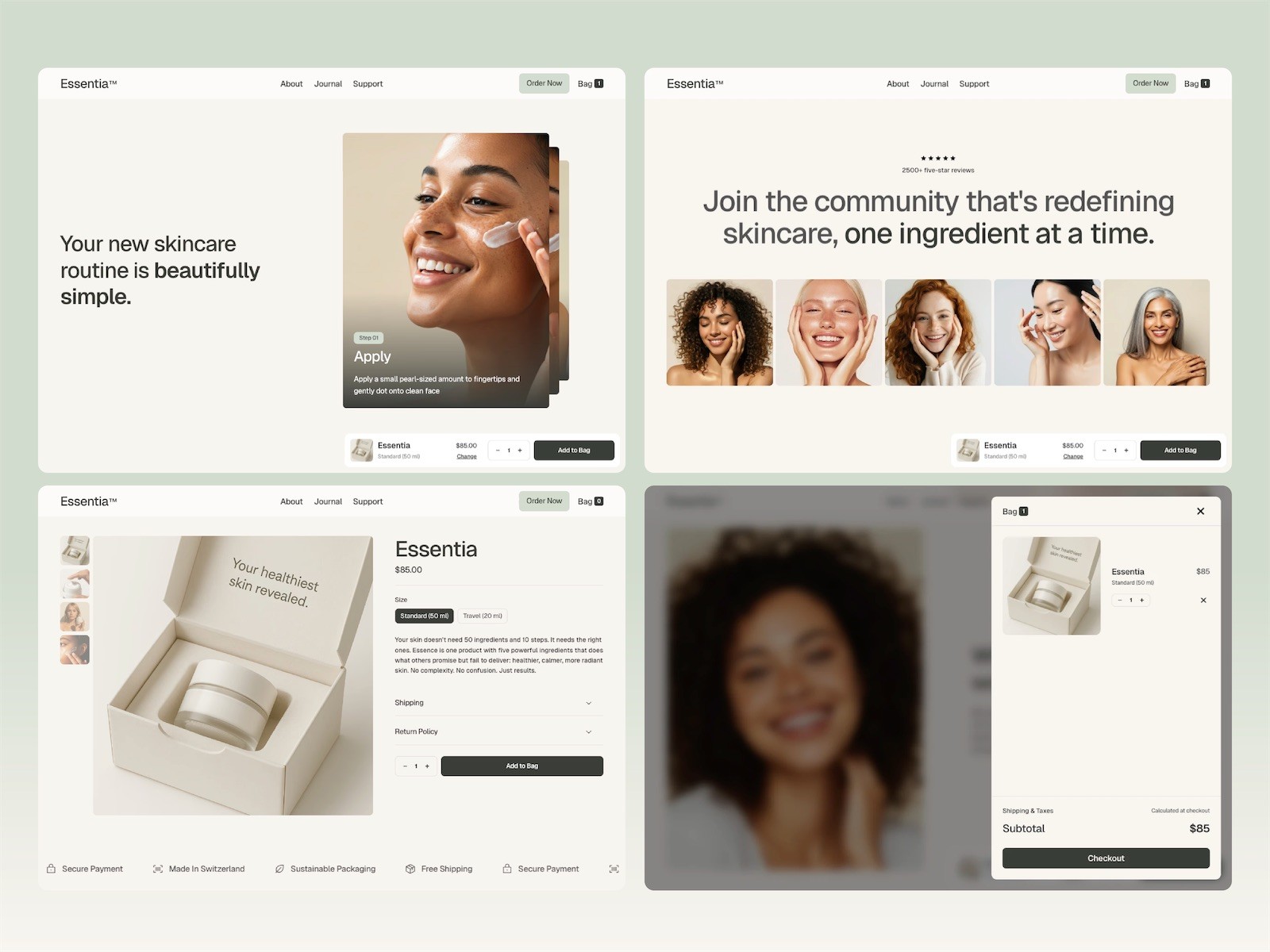
The Essentia template provides comprehensive ecommerce functionality while remaining fully customizable for brand requirements. Starting with proven foundations accelerates implementation and improves outcomes.
Implementation Best Practices
Begin with core functionality and expand features gradually based on business needs and user feedback. This approach reduces complexity while ensuring essential capabilities work properly before adding advanced features.
Focus on mobile experience first, then enhance desktop functionality. Mobile commerce dominance makes this priority essential for business success.
The Competitive Advantage of Design Led Ecommerce
Superior design directly impacts business performance through improved user experience, increased conversion rates, and stronger brand differentiation.
Framer enables design led approaches that were previously available only to businesses with significant development budgets. This democratization of sophisticated ecommerce design creates opportunities for businesses of all sizes to compete effectively.
The combination of Framer's design capabilities with Shopify's ecommerce infrastructure through Frameship represents a fundamental shift in how businesses can approach online retail. The tools exist today to build world class ecommerce experiences without the traditional barriers of cost and complexity.
Ready to build your ecommerce success story with Framer? The LaunchNow All Access Pass includes professionally designed ecommerce templates built specifically for Frameship integration, giving you everything needed to launch a conversion optimized online store.
The future of ecommerce belongs to businesses that combine great design with solid technical foundations. Framer and Frameship make that combination accessible to everyone.



